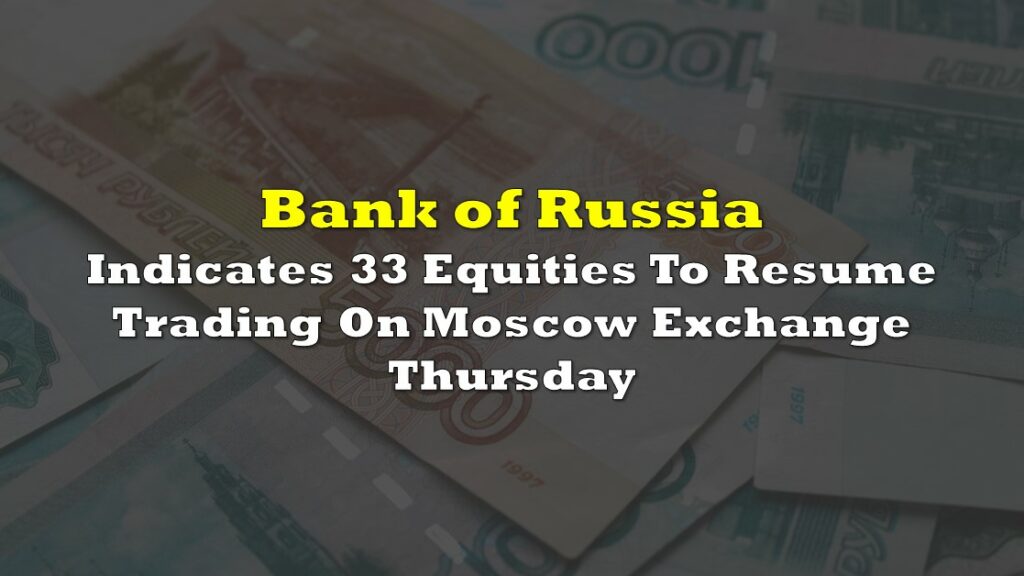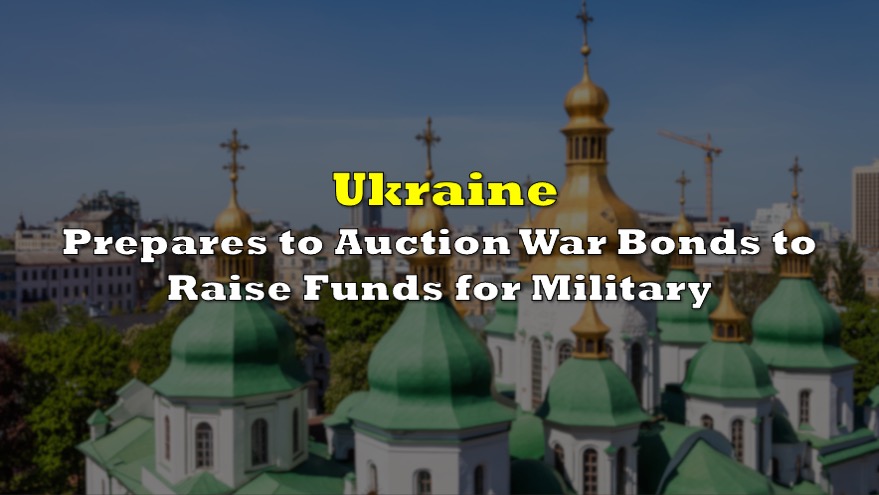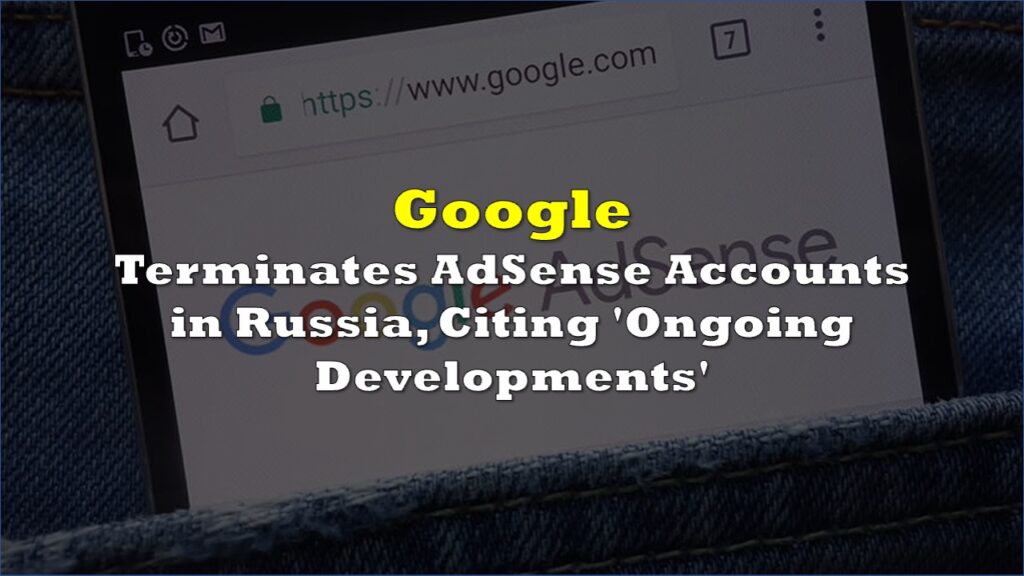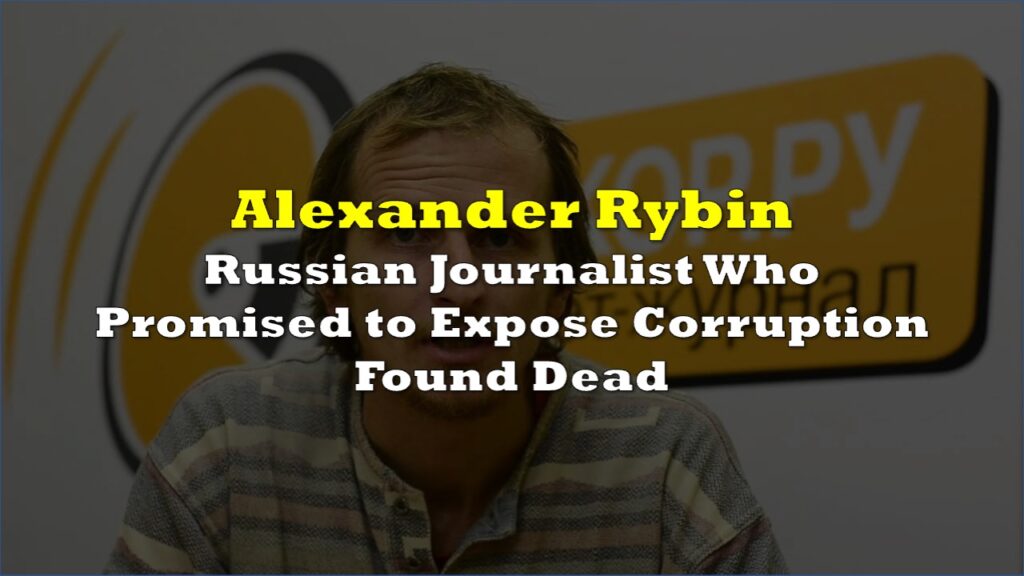It’s a little over a week since Russia launched its invasion on Ukraine. While the military forces involved are so far confined to the two main belligerent nations, the budding war has entailed the global community through various aspects.
The war developed within and outside Eastern Europe–and yes, through the airwaves.
Gold rallies to $2,000
Gold reached a new 52-week high on Sunday, soaring as high as US$2,001 per ounce. The physical asset rush climbs alongside oil following the economic sanctions imposed on Russia by the members of the global community, as well expectations on banning the country’s exports to the international market.
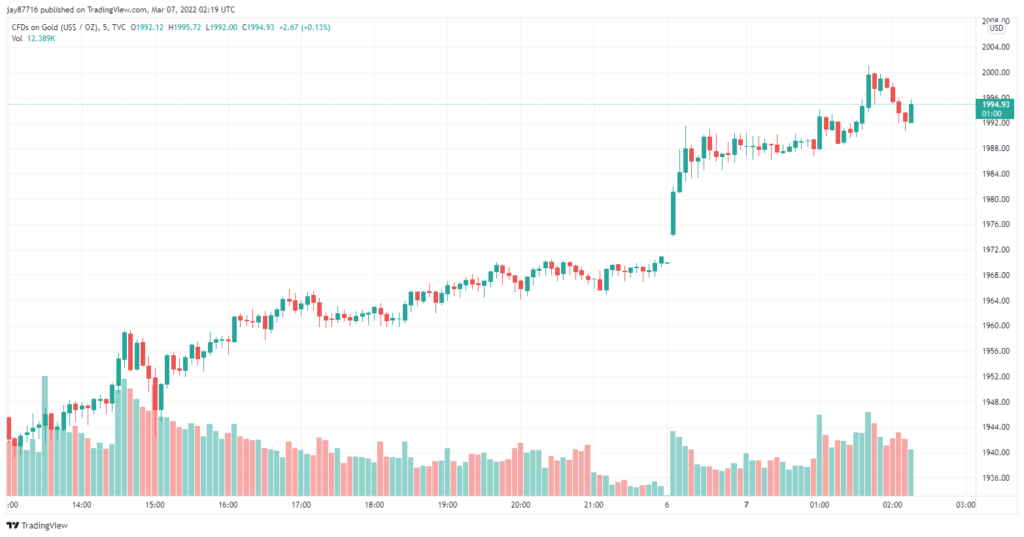
On Tuesday, bitcoin also soared high, reaching its US$40,000-mark. This follows the global community’s move to freeze out the Russian central bank, restricting the ruble’s flow out of the country. Nevertheless, this seemed to be temporary as the crypto climbed back down in recent days, hitting a low of US$37,908.11.
Weaponizing energy resources
In response to the growing sanctions imposed on the country, Russia retaliated by cutting off the natural gas supplies to Germany via the Yamal-Europe pipeline. According to estimates, the gas pipeline “covers nearly 40% of European gas demand” through the route.
Russia’s main gas pipeline to Europe stops supplies
— Indian Aerospace Defence News (IADN) (@NewsIADN) March 4, 2022
Westbound gas flows from Russia to Germany via Yamal-Europe pipeline stopped on Thursday. Russia covers nearly 40% of European gas demand with the Yamal-Europe route accounting for nearly 15% of the country’s westbound supply. pic.twitter.com/ozR2UUEl2u
As broken by Financial Juice, German Finance Minister Christian Lindner said that “a self-imposed energy embargo against Russia does not appear to advisable.”
GERMAN FINANCE MINISTER LINDNER: AT THIS TIME, A SELF-IMPOSED ENERGY EMBARGO AGAINST RUSSIA DOES NOT APPEAR TO BE ADVISABLE FOR THE LONG-TERM VIABILITY OF SANCTIONS AGAINST RUSSIA.
— Breaking News | FinancialJuice (@Financialjuice1) March 7, 2022
Tesla CEO Elon Musk tweeted on Saturday that the US needs to “increase oil & gas output immediately” amidst the hit on global supply.
“Obviously, this would negatively affect Tesla, but sustainable energy solutions simply cannot react instantaneously to make up for Russian oil & gas exports,” said Musk.
On Sunday, US Secretary of State Antony Blinken said that the country is in “active discussions” with its European allies to ban Russian oil imports. Blinken also said that the talks of this additional sanction are being considered alongside the balancing act to maintain “a steady global supply of oil.”
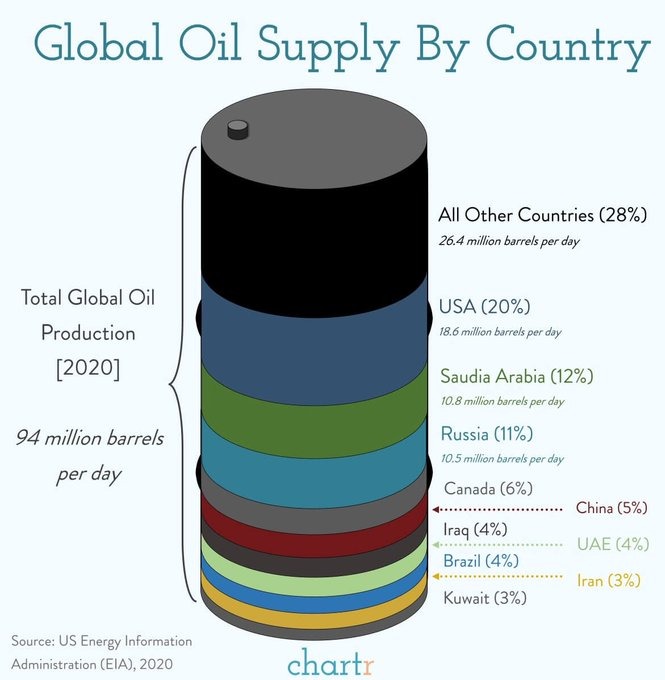
European Commission President Ursula von der Leyen seconded this sentiment on Sunday in a CNN interview, saying the goal is “to make it impossible for Putin to finance his wars.”
“For us, there is a strong strategy now to say we have to get rid of the dependency of fossil fuels from Russia,” von der Leyen said.
This is a sharp contrast to Royal Dutch Shell’s move to sell the discounted Russian oil it was able to acquire, which itself is a turnaround from the energy giant’s embargo of the country’s oil exports a week ago.
“We will further reduce our use of Russian oil as alternative crudes become available to buy, but this is highly complex as Russian oil plays a significant role in global supply and in the current, tight market there is a relative lack of alternatives,” Shell explained.
"Shell PLC has snapped up a cargo of Russian crude at a bargain price, ending a self-imposed embargo on Russian oil by the international energy industry."
— Economics in Bricks (@econinbricks) March 5, 2022
Yeah, who would have thought @Shell would prioritize profits over ethics. 🙄
Source: https://t.co/qa9PRuZqS1 pic.twitter.com/GrPHaWn0nW
Selling the discounted oil barrels at the current prices would give the company a hefty profit. However, the company said in a statement that it plans to donate the profit “to alleviate the terrible consequences that this war is having on the people of Ukraine.”
The battle in the air
The online group Anonymous tweeted this morning that Russia is “preparing to disconnect from the global internet.” The country has been criticized for using its state-owned media assets to air propaganda for its attack on Ukraine. Many countries and networks have banned the airing of Russia-owned networks, including Russia Today, in support of Ukraine.
Russia is preparing to disconnect from the global internet, limiting access to information for the Russian people. That means censorship, and we are totally against censorship of any kind. So… let's turn up the pressure! pic.twitter.com/4EhuTX9jRB
— Anonymous (@LatestAnonPress) March 6, 2022
This can effectively allow Russia to monopolize the information dissemination among its citizens, also an attempt to dampen the growing anti-war protests among Russian citizens.
The move follows Russia’s earlier ban on most social media sites, including Facebook and Twitter.
Netflix, TikTok join the Russia ban
The escalating conflict in Eastern Europe has shown how the war would progress in the digital age. Online streaming platform Netflix and Chinese social media platform TikTok are the latest tech giants to suspend their services in Russia.
Imagine thinking that canceling Putin’s (and every Russian citizen’s) Netflix subscription will help end the war. https://t.co/ffa438sYgN
— Thomas Massie (@RepThomasMassie) March 7, 2022
Netflix even took it further by suspending “all future projects and acquisitions” from the country.
Earlier in the week, lodging firm AirBnb suspended its booking calendar in Russia and Belarus. The company also supported initiatives by users booking nights in Ukraine without the intention of staying to provide monetary support to its citizens.
Credit cards cut Russian ops; Uniqlo skips the ban
Aside from the tech giants, Visa and Mastercard have also announced on Sunday the suspension of their operations in Russia. In separate statements, the credit card companies said the decision was made following the sanctions and in response to the invasion attack on Ukraine.
“We are compelled to act following Russia’s unprovoked invasion of Ukraine, and the unacceptable events that we have witnessed,” Visa CEO Al Kelly said in a statement.
The Russia Central Bank, however, downplayed the suspension, advising Russian bank-issued credit cardholders that “all Visa and Mastercard bank cards issued by Russian banks will continue to operate normally on Russian territory until their expiration date.”
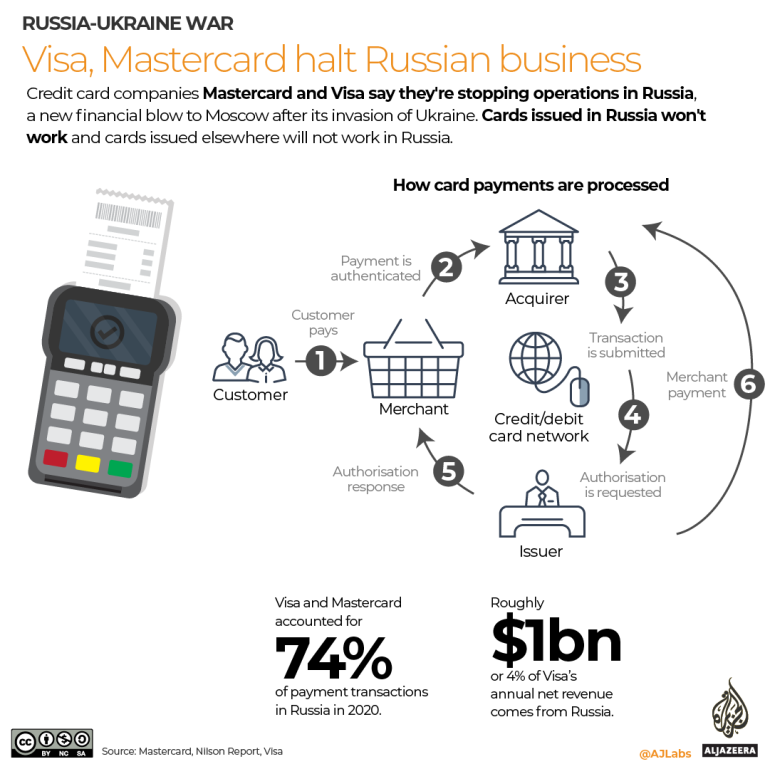
American Express also joined the fray and announced severing its ties to Russia on Sunday.
The move follows the earlier suspension imposed by the online payment portal PayPal on its Russian operations.
On the other hand, Japanese fast-fashion brand Uniqlo is staying away from the list of companies banning their Russian operations. In a Nikkei report, CEO Tadashi Yanai said: “Clothing is a necessity of life. The people of Russia have the same right to live as we do.”
In contrast, leading apparel brands including Nike and Addidas have announced their respective suspension of exports to Russia.
New Zealand bats for first-ever Russia sanction law
New Zealand Prime Minister Jacinda Ardern announced this morning that the country plans to rush a bill this week that will impose sanctions on Russia. The move follows the failed resolution by the United Nations Security Council to impose sanctions on Russia as the country holds a veto vote.
“A bill of this nature has never been brought before our parliament, but with Russia vetoing UN sanctions we must act ourselves to support Ukraine and our partners in opposition to this invasion,” said Ardern.
The country has no legal framework to impose unilateral sanctions on any nation and usually follows the UN on these decisions as a state member of the alliance. The bill, called the Russia Sanctions Bill, marks the “first of its kind” in the country. This aims to enable New Zealand to freeze assets deemed tied to Russian oligarchs and prevent sanctioned parties to use the country’s financial system as “a back door to get around sanctions”.
Russia halts Ukrainian port city evacuation with mines
Ukrainian nationals trying to flee the war-stricken country through its port city Mariupol were stopped from evacuating amid “intense shelling” by Russian forces. This goes opposite to what Russia previously announced as a temporary ceasefire to allow Ukrainians to flee combat zones in so-called humanitarian corridors.
In an interview with BBC, the International Committee of the Red Cross Director of Operations Dominik Stillhart said that the problem with the evacuation plan comes from the uncertainty of the ceasefire agreement details. He added that ICRC staff getting out of Mariupol on Sunday were blocked due to “the road indicated to them was actually mined”.
In a phone call with French President Emmanuel Macron, Russian President Vladimir Putin blamed “Ukrainian nationalists” who prevented civilians and foreign citizens from leaving Mariupol despite a cease-fire announcement. The Russian strongman denied targeting civilians but aims at achieving the country’s goals “through negotiation or war”.
On Sunday, Ukrainian Deputy Prime Minister Iryna Vereshchuk called a proposal from Russia “unacceptable”. The proposal, arising from the negotiation talks, in effect suggests Ukrainians fleeing from the capital city Kyiv will be allowed to evacuate to Russia’s ally, Belarus, and from those in Kharkiv to pass the evacuation corridor leading to Russia.
The delegates from the two countries come together again today for the third round of negotiation talks.
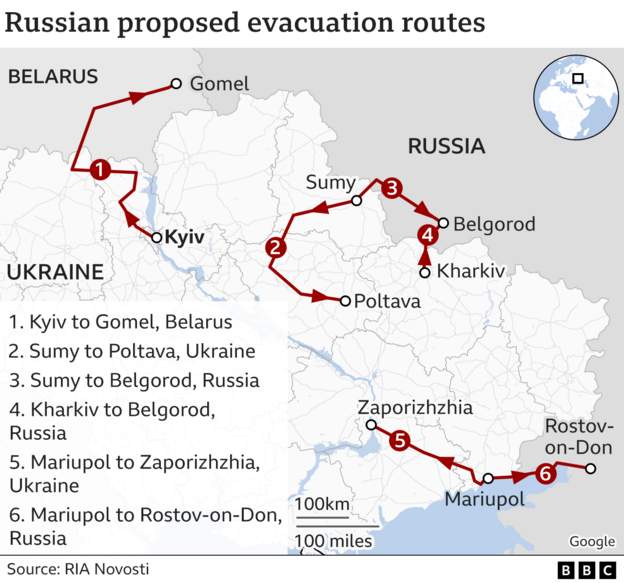
NATO “green lights” Polish fighter jets; Russia warns countries offering airfields to Ukraine
On Sunday, US Secretary of State Anthony Blinken said that North Atlantic Treaty Organization members have given the go-signal to send fighter jets to Ukraine.
“That gets a green light,” said Blinken said in an interview.
Blinken added that the NATO members are talking to Poland, which shares a border with Ukraine, on what they can do to “backfill their needs” should the country choose to provide the fighter jets to its war-torn neighbor.
On the other hand, a spokesman of the Russian defense ministry warns any country that will offer its respective airfield to Ukraine will be deemed to have joined the military conflict.
⚡️⚡️Any country offering its air fields to Ukraine for attacks on Russia may be considered as having entered the conflict.
— Ragıp Soylu (@ragipsoylu) March 6, 2022
— Russia defence ministry spokesman per Reuters
This follows Russian Foreign Minister Sergey Lavrov’s pronouncement last week that should a third world war ensue, it would be “nuclear”. The country accuses Ukraine of seeking nuclear weapons and that it still has “Soviet nuclear technologies and the means of delivery of such weapons”.
Russia detains dissenters
Back at its home, Russia is reportedly detaining anti-war protesters. The country’s interior ministry reported on Sunday that over 3,500 Russian citizens staging protests against the country’s actions against Ukraine have been detained.
The report said there are 5,200 people who have taken part in the protests. Around 1,700 people were arrested in Moscow, 750 people in St. Petersburg, and 1,061 in other cities.
According to estimates by UN, at least 364 Ukrainians have died and 759 have been injured since the invasion started.
Information for this briefing was found via AlJazeera, The New York Times, CNN, BBC, CBS News, The Guardian, Reuters. The author has no securities or affiliations related to this organization. Not a recommendation to buy or sell. Always do additional research and consult a professional before purchasing a security. The author holds no licenses.





